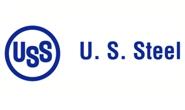Government/Policy

November 7, 2017
ITC Upholds Termination of U.S. Steel Transshipment Claim
Written by Sandy Williams
The termination of U.S. Steel Corp.’s Section 337 transshipment claim was upheld by the U.S. International Trade Commission on Nov. 1.
U.S. Steel alleged in its false designation of origin claim that Chinese steel companies misrepresented the country of origin in paperwork in order to evade U.S. antidumping and countervailing duties. The seven respondents (Baosteel Group, HeSteel Group, Masteel Group, Shougang Steel Group, Shagang Steel Group, WISCO Steel Group, and Ansteel Group) argued that U.S. Steel presented insufficient evidence to substantiate a claim of false shipment. Agreeing with the Chinese companies, Judge Dee Lord issued a summary judgment Oct. 2 stating that U.S. Steel presented “little or no evidentiary support” for its claims.
Wrote Lord, “U.S. Steel maintains that [U.S. Customs and Border Protection] is deceived by false documents designed to circumvent tariffs imposed on Chinese steel, but U.S. Steel in its opposition does not point to any document that was provided to Customs in connection with any instance of alleged unfair importation, or any document indicating action taken by Customs based on false designation. It cannot be assumed that documents provided to Customs were false; this must be demonstrated with evidence.”
U.S. Steel did not file a petition appealing the decision, so the USITC ruling is now final.
Of the three original claims in U.S. Steel’s Section 337 petition—transshipment, antitrust/price fixing, and theft of trade secrets—only the antitrust claim remains to be decided. U.S. Steel appealed a dismissal of the claim by Lord, and an oral argument was heard in April. The ITC will determine if the dismissal should be upheld or sent back to the administrative law judge for further review. The ITC has until May 9, 2018, to issue its decision.
“U.S. Steel is disappointed by the recent decision to dismiss a key component of our Section 337 case against Chinese state-owned steel producers,” said a spokesperson for the company. “We will redirect our efforts towards our price-fixing claim that will address the injuries our company sustained when the same Chinese steel manufacturers and their distributors conspired to fix prices. We appealed the November 2016 dismissal of that claim and the U.S. International Trade Commission heard oral argument in April 2017. We urge the commission to issue a determination that would enable our price-fixing claim to move forward.”







